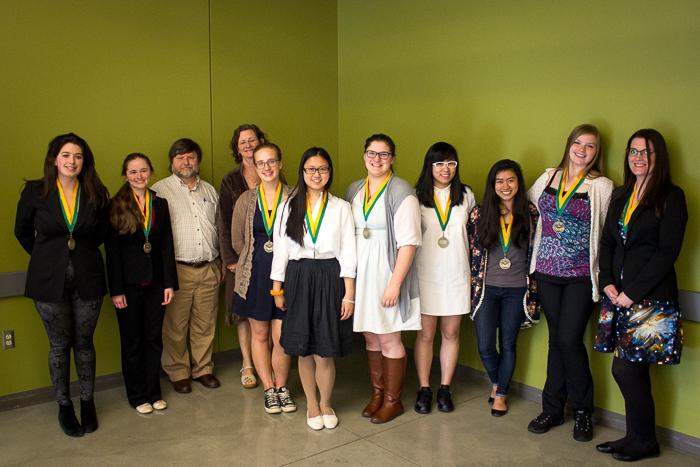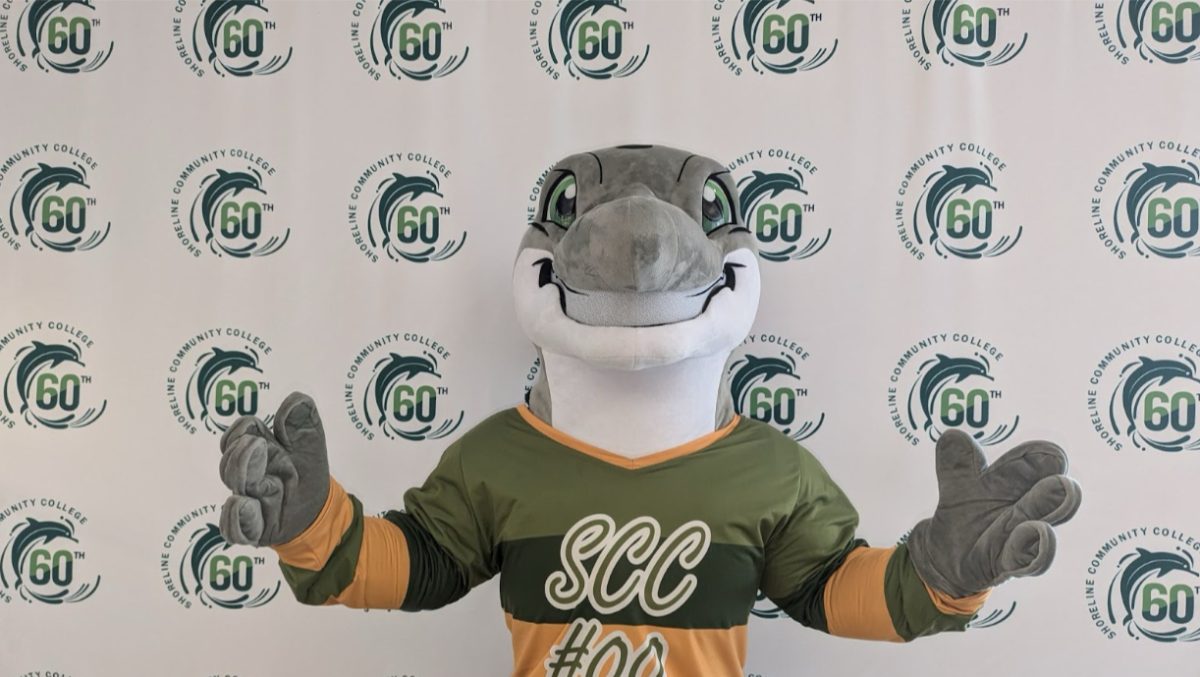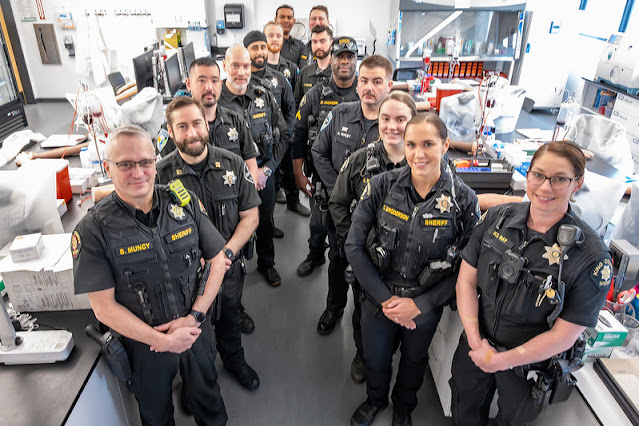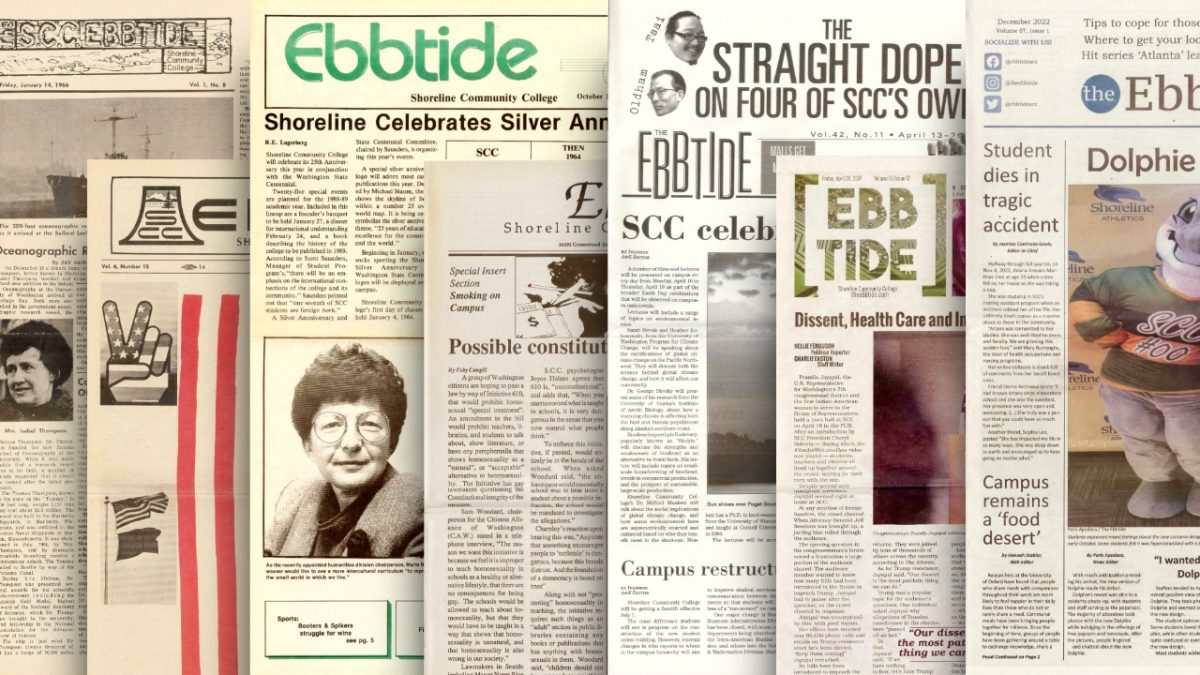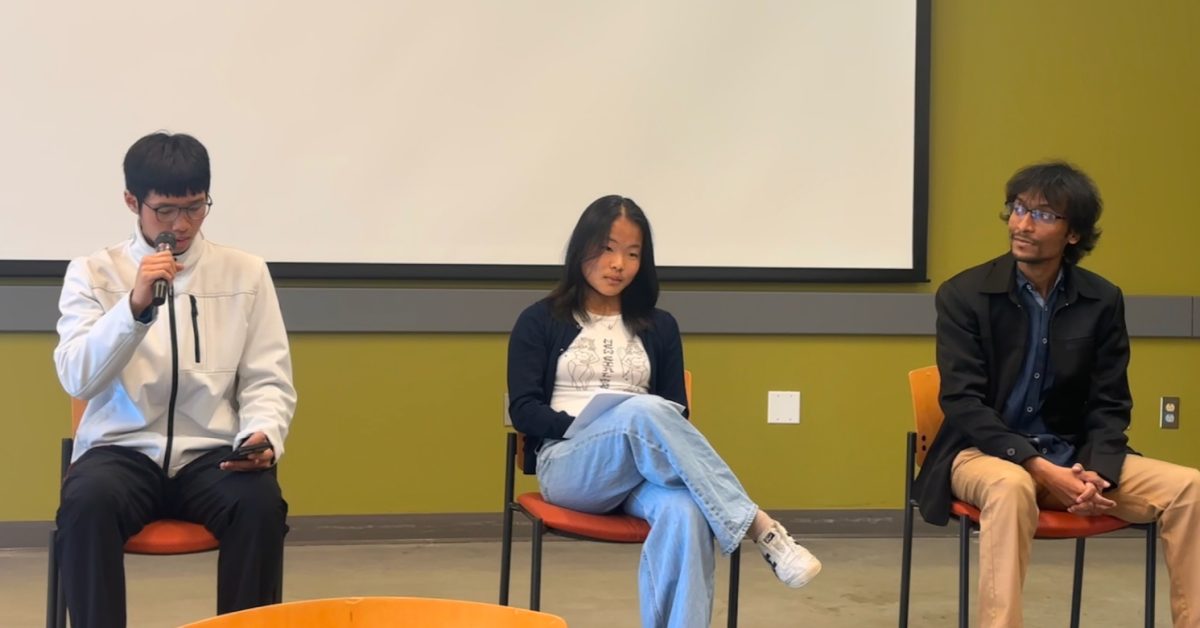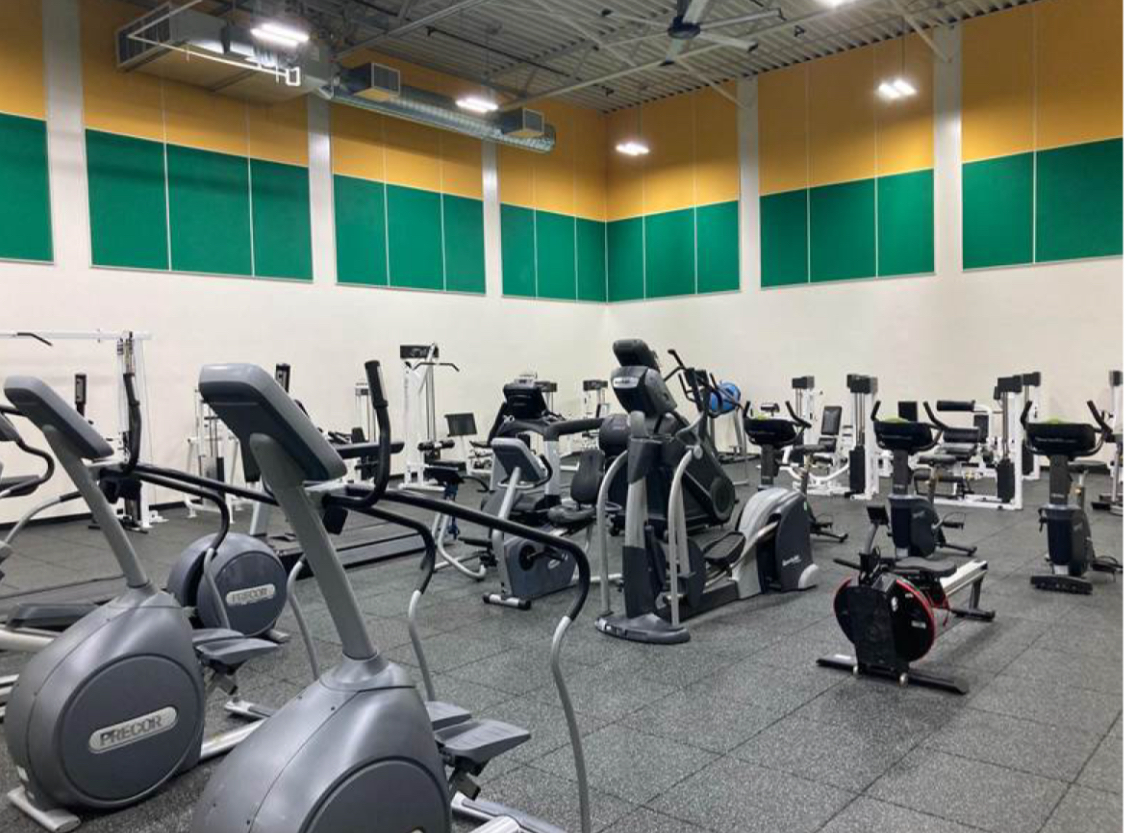Photo by Gregor Elgee
Caption: The students and instructors for SCC’s honors class
By Gregor Elgee
The ninth annual Honors program presentations, in which 10 students presented in-depth projects they have been working on since fall quarter, took place on Wednesday, June 1.
Honors Program Director Terry Taylor encouraged students to join the program next year, saying that it is a chance for students to not only improve their college application but also to begin research on a topic that can ultimately lead to graduate level research.
“The honors project gives (students) the chance to work in-depth on a single narrow topic…doing a level of research that most undergraduates don’t ever do,” Taylor said.
“It’s more what you would do as an upper division student or even as a graduate student… Most students don’t do literature reviews until graduate school.”
Associated Student Government (ASG) President Ashley Cowan is an example of just how fulfilling the program can really be. Her project, titled “Youth on the Margins: A Statistical Analysis of Youth Political Participation and Diversity in the United States”, was a subject chosen not just because of her own political engagement on campus but because of her own struggles coping with a mental disability.
“My job for the past few years has been to represent students across the campus and the State of Washington.” says Cowan. “So much of my work has been met with apathy by my peers and I sought to learn why.”
Cowan says that her project was important to her because public policy and political participation has a direct impact on her ability to succeed in school. Having dropped out of three high schools before coming to Shoreline, she says she had teachers who wouldn’t follow her Individualized Education Plan.
“There is a lack of enforcement of existing policy and in higher education there are holes in public policy, which prevents students like me from succeeding in school.”
A 3-quarter-long program that involves a sequence of capstone courses and seminars, the Honors program requires that students maintain 3.0 cumulative GPA and a 3.5 GPA within the Honors courses.
During the course of their year-long project, students research a topic, consult with faculty advisors who are familiar with the discipline, and then write a literature review of the current theories related to their subject.
“It’s a lot of work on top of a regular student load,” says Taylor. “And most people are taking a full load on top of honors.”
Taylor admits that the program is rigorous but says that the experience is rewarding. Students have come back years after graduation and commented on how their honors experience gave them direction toward their chosen careers.
Sophie Morse, whose project also exemplifies how passionate students often become during the research phase of their project, studied how people can contract waterborne illnesses during disasters. Becoming a volunteer at Harborview Medical Center during fall quarter, she combined her interest in emergency medicine with a multinational perspective of the Haitian earthquake in 2010.
“I am both French and American and I feel that both my countries betrayed this little Island,” says Morse. “The previous economy was not the only thing that led to this disaster. I’m trying to find out ways of how to help somehow…It’s a frustrating moment though because you realize ‘Oh I don’t have the education or anything to make an impact’. I’m hoping one day I might join Doctors Without Borders so that I can prevent something like that happening again.”
Brooke Zimmers, the Co-Director of the Honors program and the introductory speaker to the presentations, says that next year Honors will be incorporating an American Honors system into the current curriculum. Students will be required to take 30 credits in order to graduate from will have the option of taking the research track as well.
Students can choose to participate in the research project on top of the American Honors classes, a program which requires two years of coursework, or students can choose to just take the American Honors classes, which requires one year of study as well. American Honors will include such classes as Geography 100 and English 101 and will require students take 30 credits in order to graduate from the program.


